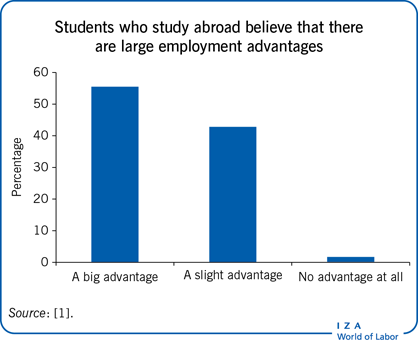Elevator pitch
In recent decades, the number of university students worldwide who have received some part of their education abroad has been rising rapidly. Despite the popularity of international student exchange programs, however, debate continues over what students actually gain from this experience. A major advantage claimed for study abroad programs is that they can enhance employability by providing graduates with the skills and experience employers look for. These programs are also expected to increase the probability that graduates will work abroad, and so may especially benefit students willing to pursue an international career. However, most of the evidence is qualitative and based on small samples.

Key findings
Pros
Study abroad programs may provide graduates with the skills and the experience employers are looking for.
By increasing the probability that graduates will work abroad, study abroad programs may especially benefit students who seek to pursue an international career.
Study abroad programs may improve the employment prospects of students from relatively disadvantaged backgrounds.
Cons
University students may decide to spend some time abroad during their study not because they want to grow academically and professionally, but because they seek adventure and excitement.
While graduates who have studied abroad are found to be more employable relative to their non-internationally mobile peers, this difference may reflect the influence of unobserved individual characteristics, such as personality.
Most studies on the relationship between university study abroad and graduates’ employability are qualitative and anecdotal.